Based on the 1865 novella Lady Macbeth of Mtsensk by Russian author Nikolai Leskov, 2017’s Lady Macbeth is a dark tale of love, lust and ambition in nineteenth-century rural England.
As its historical setting may suggest, this film is not about Shakespeare’s infamous leading lady. Rather, it follows the story of Katherine Lester (Florence Pugh), a young woman stifled by her loveless arranged marriage to a man twice her own age (Paul Hilton). When her husband leaves to embark on a trip, Katherine soon begins a passionate affair with a worker on their estate, sparking the release of a new and dangerous side of her personality.
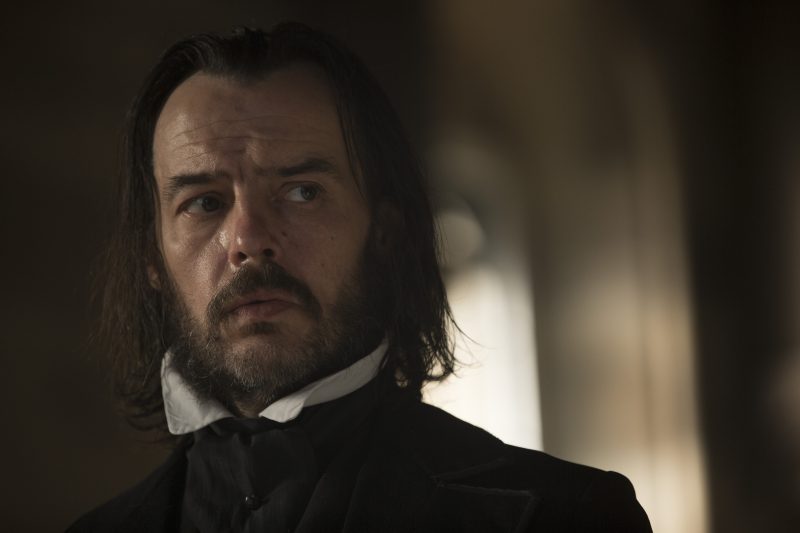
‘Lady Macbeth’, 2017. Image: Supplied
The sadness and isolation forced upon Katherine at the beginning of the film is contagious. She exists only within the cold, sterile walls of her husband’s house which is plagued with silence during the first few sparse scenes. Her husband’s neglect and cruelty towards her is palpable, and initially Katherine commands respect from the audience through her immense strength in the face of such misery, remaining always composed. Any illusions that Katherine plans to remain a silent victim of continued abuse, however, are quickly shattered when she meets Sebastian (Cosmo Jarvis).
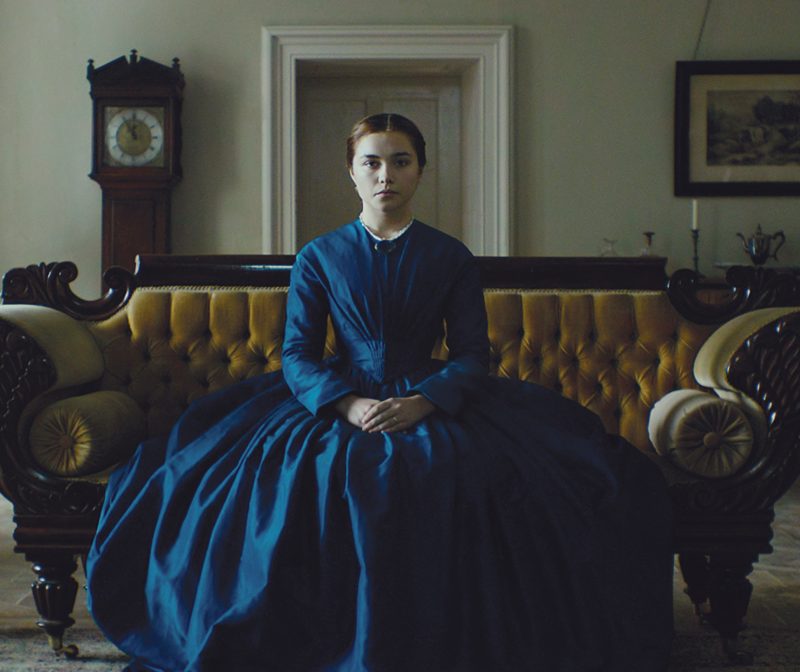
‘Lady Macbeth’, 2017. Image: Supplied
At no point does the affair between these two young people appear to be driven by genuine love. Their relationship is incredibly sudden, and the direct result of Sebastian charging into Katherine’s bedroom uninvited, leading to a sexual encounter only after she has attempted to fight him off. It seems, rather, that Katherine’s desire to be with Sebastian is driven largely by her wish to rebel against the oppressive environment she has been forced to exist within. This poor, weak groomsmen is everything her pompous and cruel husband is not, and her intense attachment to him is grounded in a determination to gain her freedom and independence, much more than a lover.
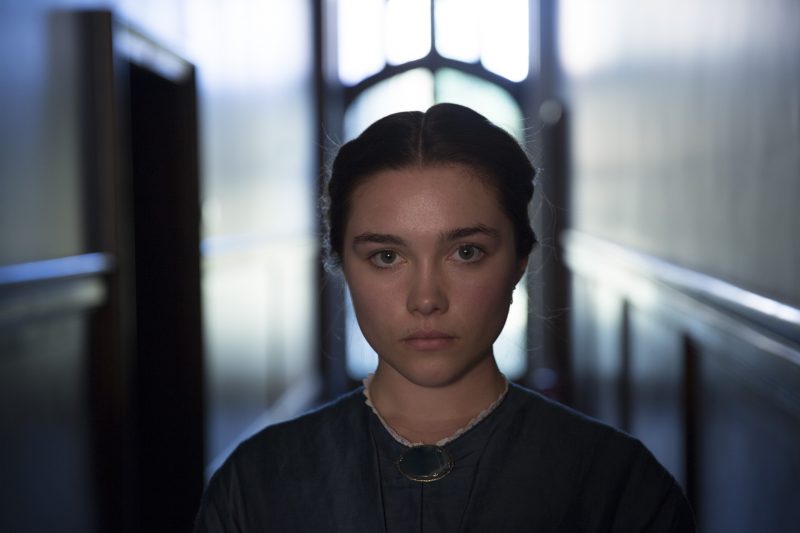
‘Lady Macbeth’, Florence Pugh, 2017. Image: Supplied
It is at this point we realise where the film get its title. Katherine’s ruthlessness and ambition have no end, and she is willing to go to unthinkable lengths to ensure her newfound power is not taken from her. Pugh takes on this twisted heroine role with great conviction. Her cold, stoney-faced presence is consistently balanced with an emotional intensity that bubbles underneath the surface, making Katherine all the more unnerving. The parallels between original text and adaptation continue as Sebastian, this story’s Macbeth, proves to be as easily manipulated and overridden as Shakespeare’s Scottish king. Jarvis encapsulates the young man’s arrogance and ardour at the film’s outset, and guides us through Sebastian’s descent into emotional turmoil when he finds himself out of his depth.
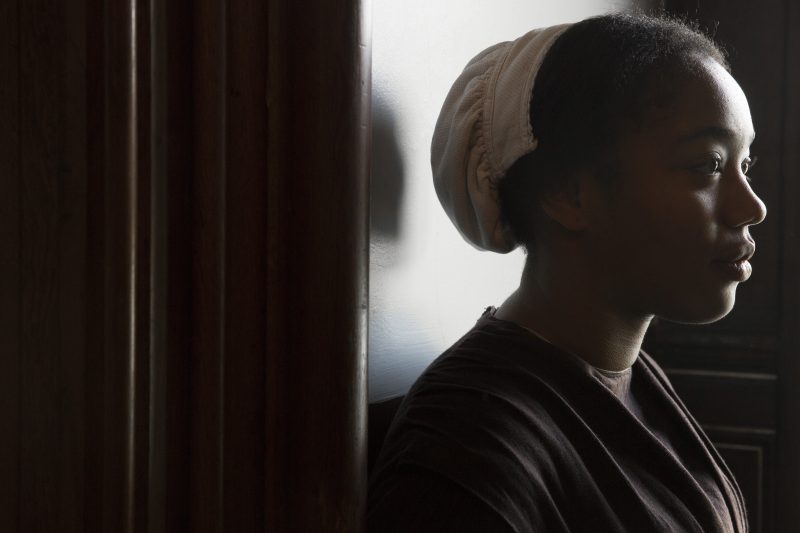
Naomi Ackie in ‘Lady Macbeth’ 2017. Image: Supplied
Anna, Katherine’s maid (Naomi Ackie), evoked much of my empathy and appeared to be the film’s most human character amongst a myriad of emotionally-inept and vile ones. Ackie brought great sincerity to the role, and the continued overt mistreatment of Anna by her superiors throughout the film was both tragic and disturbing.
Lady Macbeth is, aesthetically, a beautiful film. Director William Oldroyd has perfectly captured the haunting beauty of the English moorlands, with dark and stunning landscape shots that seem to be straight out of a Bronte sister novel. The film’s initial slow pace is exacerbated by long moments of silence which dwindle over some striking imagery of the countryside, and remain a main feature when the energy begins to escalate.
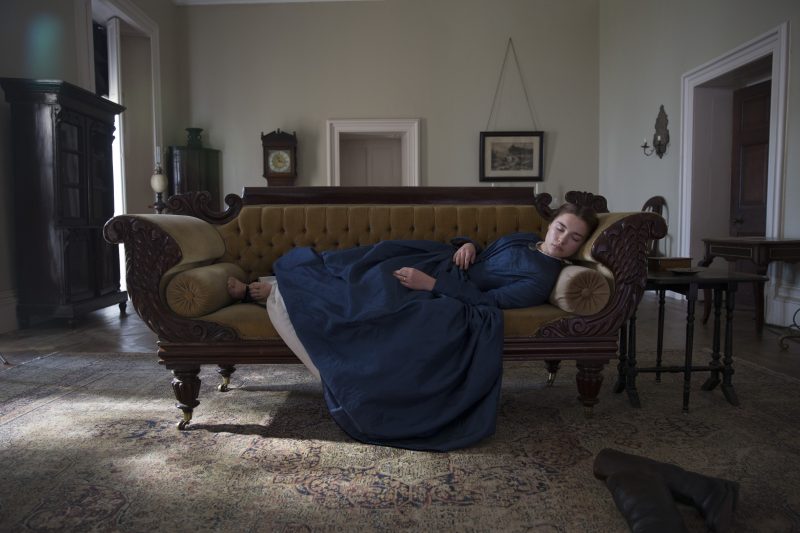
‘Lady Macbeth’, 2017. Image: Supplied
Lady Macbeth is an evocative and mesmerising film based on one of Shakespeare’s most famous characters. It is film that begins with the pace of a quiet, countryside drama and ends with the energy of an intense thriller, with a strong cast and incredible setting that effectively crafts the engaging story of one woman’s dark desire to be more than her world has allowed her to be.
Lady Macbeth is in cinemas June 29

